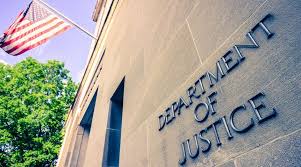Deciphering FCPA Enforcement Trends

In following the Justice Department and the Securities Exchange Commission FCPA enforcement actions, I am always reminded of the popular phrase — “reading the tea leaves.” (or “tasseography,” a fortune-telling method based on tea leave patterns in tea sediments). Despite a slow initial year in 2021, the Biden Administration’s stamp and push on FCPA enforcement is becoming clear.
Keep in mind, DOJ and SEC officials have promised a new, tougher approach to FCPA enforcement. Change in government enforcement policies and results take time. However, no one expected the changes to take this long. In addition, the initial enforcement push has raised some interesting questions concerning the specific steps taken by enforcement officials.
In looking at the most recent FCPA enforcement actions (i.e., Stericycle, Glencore, and Tenaris), there are significant new trends and some questions that need to be examined. So, let’s take stock in where we are:
Independent Compliance Monitors — DOJ has stressed the importance of insisting on appointment of independent compliance monitors as part of settlements where the defendant company failed to complete enhancement of its compliance program or test of its new program. As a result, DOJ has appointed independent compliance monitors in the first two settlements — Stericycle and Glencore.

Prior Criminal History — DOJ stressed the importance of evaluating a company’s prior criminal and civil record. This was a controversial step because some feared this would result in unfair assessment of prior bad acts or regulatory violations as part of an FCPA resolution. To justify this new perspective, DOJ explained that it intended to focus on recidivists and understanding the corporate defendants prior record of conduct, whether criminal, civil or regulatory.
While DOJ’s commitment to understanding a company’s historical record is an interesting change, DOJ’s recent failure to prosecute Tenaris for its FCPA violations in Brazil raises interesting questions. DOJ officials made numerous statements that it intended to prosecute aggressively companies for violations of prior non-prosecution and deferred prosecution agreements. In light of Tenaris’ history, DOJ’s failure to prosecute is inexplicable.
The SEC prosecuted Tenaris for FCPA violations in Brazil that occurred after a 2011 deferred prosecution agreement. The SEC’s 2011 settlement resulted in the payment of $5.4 million in disgorgement and prejudgment interest by Tenaris. The SEC took this prior enforcement action into account and Tenaris agreed to pay $78 million for its bribe payments in Brazil.

DOJ’s decision to close its investigation of Tenaris was announced in a Tenaris press release. In 2011, DOJ entered a non-prosecution agreement with Tenaris for bribes paid to Uzbekistan government officials for lucrative oil and natural gas pipeline contracts. Along with the NPA, Tenaris paid a criminal fine of $3.5 million.
Given this prior record, DOJ failed to step up and stick to its word that violations of NPAs and DPAs would be aggressively prosecuted. Tenaris’ bribery activity continued into 2013, two years after the execution of the SEC and DOJ settlements.
CCO Compliance Certifications — DOJ and the SEC are now requiring CCO compliance certifications at the end of an independent compliance monitor term or a self-reporting term. Glencore and Tenaris included certification requirements.
CCOs have responded with relevant questions. DOJ explained that the compliance certification requirement is intended to empower CCOs within the corporate organization. That is an admirable goal and the CCO certification requirement will certainly elevate CCO standing. However, CCOs have some concern about this approach.
Along with the empowerment, CCOs fear potential liability for false statement and obstruction of justice crimes for false certifications. DOJ’s required certification form includes attestations that facilitate false statement and obstruction of justice prosecutions of CCOs. In raising this specter, CCOs and other professionals fear that discretionary prosecutions could result in CCO prosecutions where the evidence may be ambiguous or questionable.

As a former prosecutor, it is one thing to rely on prosecutorial discretion as a legitimate boundary against abuse. A large percentage of federal prosecutors will act honorably and in accordance with proper principles. However, that may not be enough to alleviate legitimate CCO anxieties.
It is not so reassuring when we recall recent prosecutions that demonstrate that prosecutorial discretion is not so consistent. For example, consider the prosecution of the Boeing Technical Director and Special Prosecutor Durham’s unsuccessful prosecution of Michael Sussman for false statements. in both cases, the juries quickly returned with not guilty verdicts, and individual jurors told reporters that the case should never have been brought and was a waste of their time.
In light of these concerns, DOJ should continue to build on its strong relationship with the CCO community and address any CCO concerns. DOJ should evaluate whether some requirement for centralized review and approval of a CCO prosecution is needed to ensure consistent application of the new potential CCO liability.















